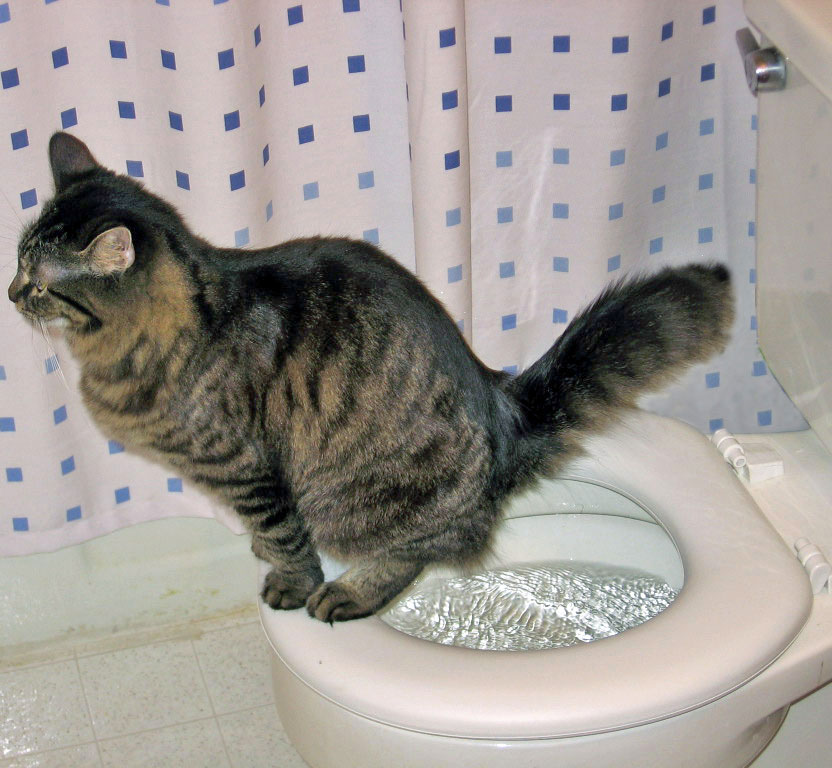Reasons You Mustn't Flush Cat Poop Down Your Toilet - Preserve Your Plumbing Health
Reasons You Mustn't Flush Cat Poop Down Your Toilet - Preserve Your Plumbing Health
Blog Article
This post listed below relating to Don’t flush cat feces down the toilet is amazingly interesting. Read it for your own benefit and decide what you think of it.

Introduction
As feline proprietors, it's necessary to be mindful of just how we take care of our feline buddies' waste. While it may appear hassle-free to purge pet cat poop down the toilet, this technique can have detrimental consequences for both the setting and human health and wellness.
Alternatives to Flushing
Luckily, there are safer and a lot more responsible means to take care of feline poop. Consider the following choices:
1. Scoop and Dispose in Trash
One of the most common approach of disposing of pet cat poop is to scoop it into a biodegradable bag and toss it in the trash. Make sure to use a dedicated trash scoop and throw away the waste promptly.
2. Usage Biodegradable Litter
Select biodegradable feline clutter made from materials such as corn or wheat. These litters are eco-friendly and can be securely gotten rid of in the garbage.
3. Hide in the Yard
If you have a backyard, think about burying feline waste in an assigned location far from vegetable yards and water sources. Be sure to dig deep enough to avoid contamination of groundwater.
4. Set Up a Pet Waste Disposal System
Purchase a pet dog waste disposal system specifically designed for pet cat waste. These systems use enzymes to break down the waste, reducing odor and environmental effect.
Health and wellness Risks
Along with environmental issues, flushing pet cat waste can likewise position health threats to people. Cat feces might include Toxoplasma gondii, a parasite that can trigger toxoplasmosis-- a potentially extreme disease, specifically for expecting women and people with weakened body immune systems.
Environmental Impact
Purging feline poop presents dangerous pathogens and bloodsuckers into the supply of water, posturing a significant danger to marine environments. These impurities can negatively impact aquatic life and concession water quality.
Final thought
Liable animal ownership extends past giving food and sanctuary-- it additionally involves appropriate waste monitoring. By avoiding purging feline poop down the bathroom and going with different disposal approaches, we can minimize our ecological footprint and protect human health.
Why Can’t I Flush Cat Poop?
It Spreads a Parasite
Cats are frequently infected with a parasite called toxoplasma gondii. The parasite causes an infection called toxoplasmosis. It is usually harmless to cats. The parasite only uses cat poop as a host for its eggs. Otherwise, the cat’s immune system usually keeps the infection at low enough levels to maintain its own health. But it does not stop the develop of eggs. These eggs are tiny and surprisingly tough. They may survive for a year before they begin to grow. But that’s the problem.
Our wastewater system is not designed to deal with toxoplasmosis eggs. Instead, most eggs will flush from your toilet into sewers and wastewater management plants. After the sewage is treated for many other harmful things in it, it is typically released into local rivers, lakes, or oceans. Here, the toxoplasmosis eggs can find new hosts, including starfish, crabs, otters, and many other wildlife. For many, this is a significant risk to their health. Toxoplasmosis can also end up infecting water sources that are important for agriculture, which means our deer, pigs, and sheep can get infected too.
Is There Risk to Humans?
There can be a risk to human life from flushing cat poop down the toilet. If you do so, the parasites from your cat’s poop can end up in shellfish, game animals, or livestock. If this meat is then served raw or undercooked, the people who eat it can get sick.
In fact, according to the CDC, 40 million people in the United States are infected with toxoplasma gondii. They get it from exposure to infected seafood, or from some kind of cat poop contamination, like drinking from a stream that is contaminated or touching anything that has come into contact with cat poop. That includes just cleaning a cat litter box.
Most people who get infected with these parasites will not develop any symptoms. However, for pregnant women or for those with compromised immune systems, the parasite can cause severe health problems.
How to Handle Cat Poop
The best way to handle cat poop is actually to clean the box more often. The eggs that the parasite sheds will not become active until one to five days after the cat poops. That means that if you clean daily, you’re much less likely to come into direct contact with infectious eggs.
That said, always dispose of cat poop in the garbage and not down the toilet. Wash your hands before and after you clean the litter box, and bring the bag of poop right outside to your garbage bins.
https://trenchlesssolutionsusa.com/why-cant-i-flush-cat-poop/

As an enthusiastic reader on Can You Flush Cat Poo or Litter Down the Toilet?, I thought sharing that piece of content was really useful. In case you liked our article please don't forget to pass it around. Thanks a lot for taking the time to read it.
Click For More Information Report this page